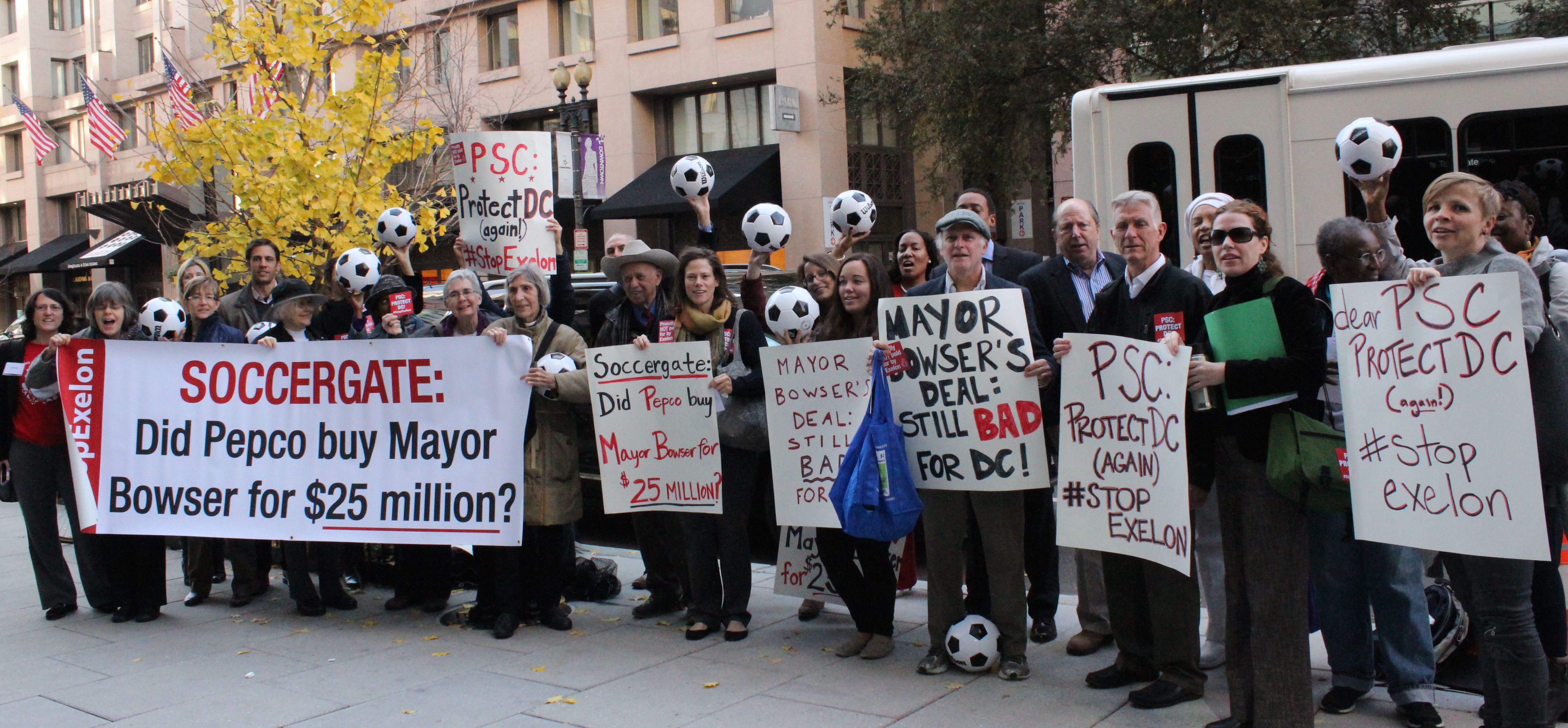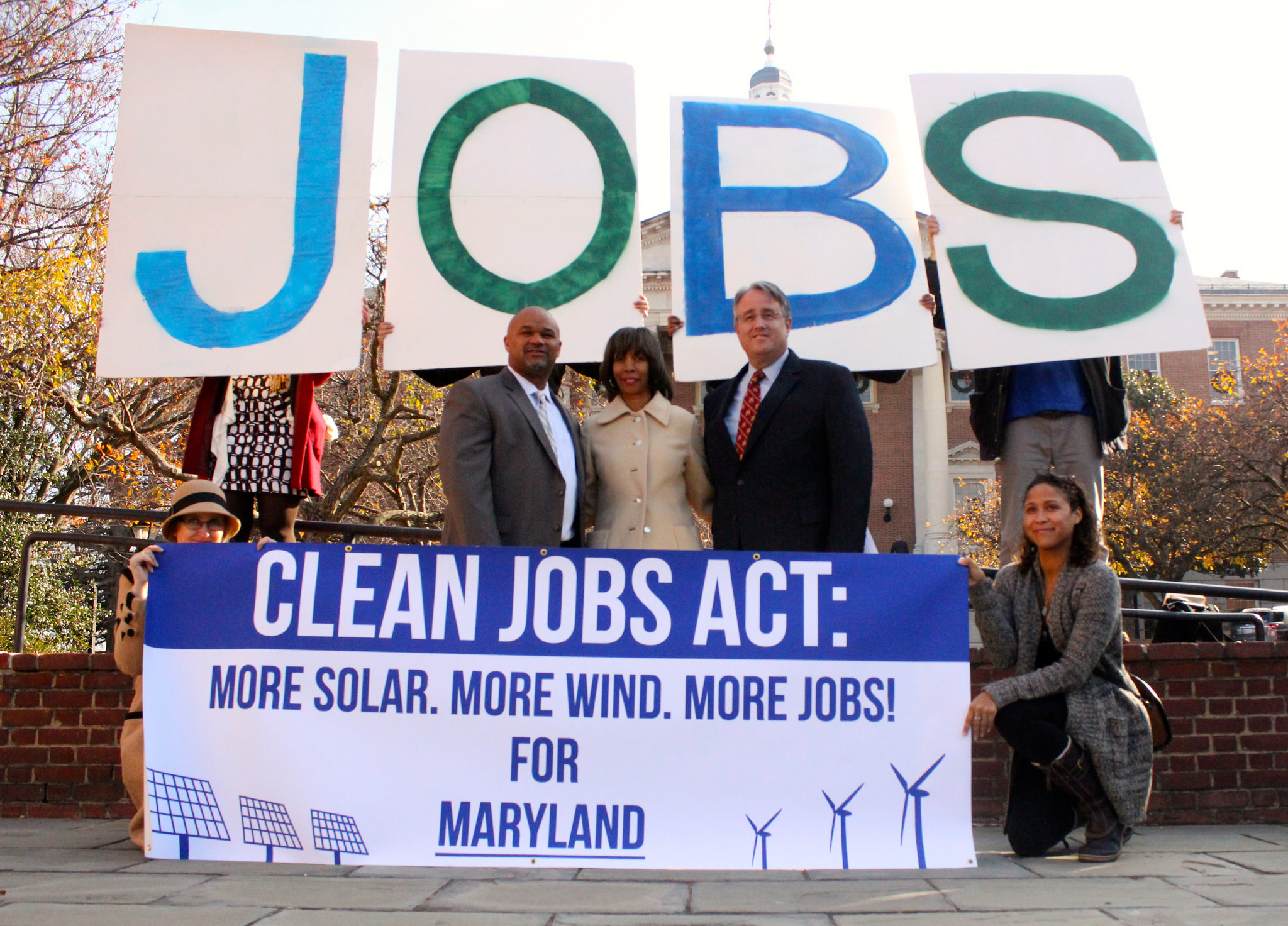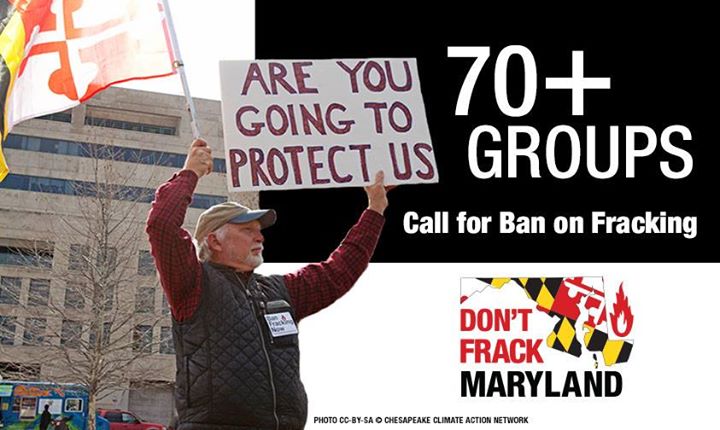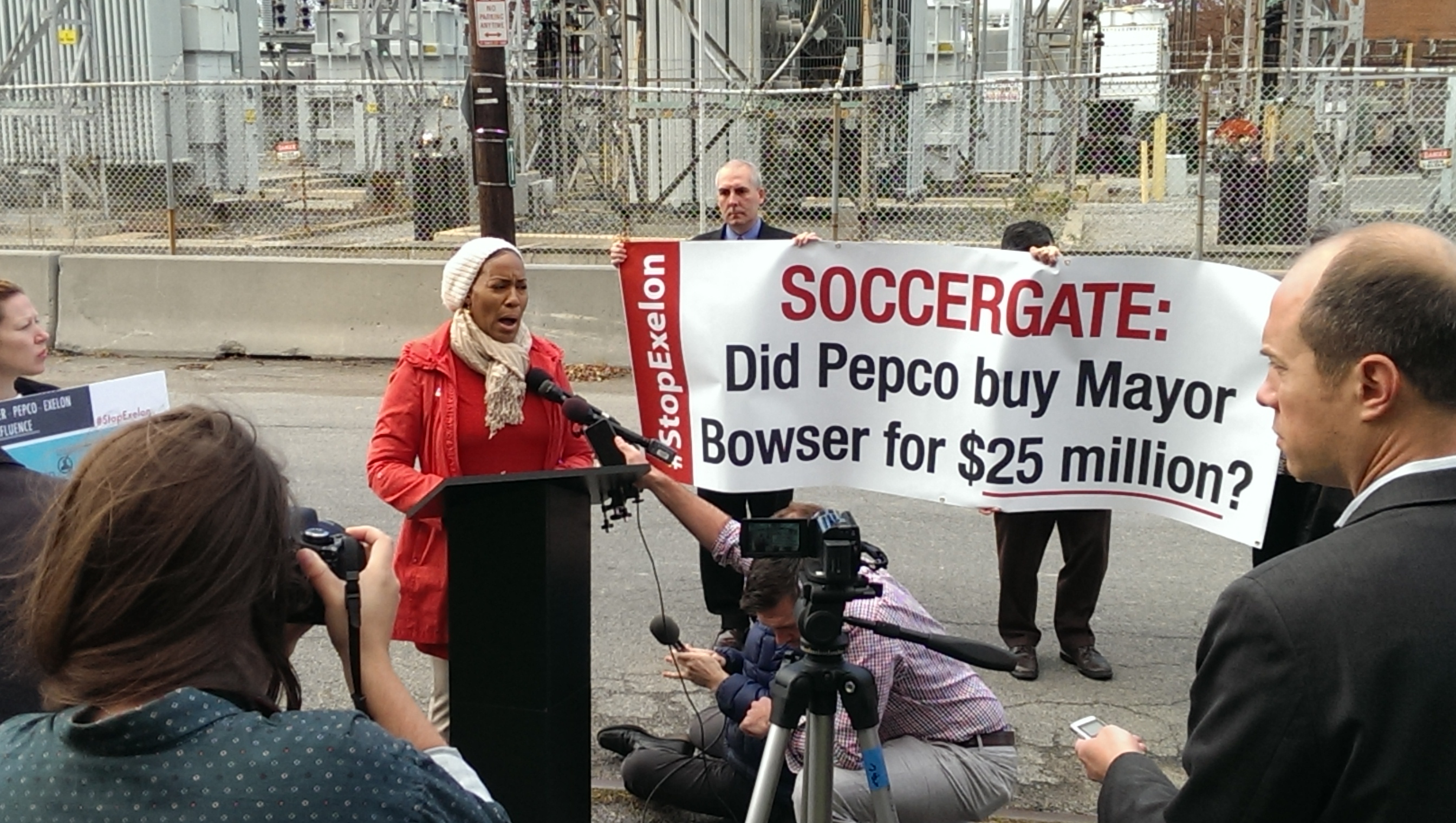For Immediate Release: December 22, 2015
Contact: Monique Sullivan, 202-440-4318, monique@chesapeakeclimate.org
Regional carbon-cap program would provide first dedicated state funds for flood protection
RICHMOND—In the wake of historic climate progress out of Paris, and just a day after Governor Terry McAuliffe released his final climate commission report, climate activists urged Governor McAuliffe to pick up the pace on climate action and endorse a bipartisan plan that would jump-start solutions to rising sea levels and flooding.
Activists from more than half a dozen groups have delivered 1,000 petitions every week since just after this fall’s elections, and will make the final delivery to the Governor’s offices in Richmond today – totaling nearly 6,000 from across the state. They are calling on Governor McAuliffe to throw his weight behind adding Virginia to the Regional Greenhouse Gas Initiative (RGGI), a nine-state system that caps and reduces carbon emissions from power plants. The move would significantly reduce Virginia’s emissions of greenhouse gases while generating about $250 million per year to invest in flood-protection measures and promote statewide climate solutions.
“Given dangerous flooding is already a routine threat along our coast, Virginia must pick up the pace on climate action. The governor’s recommendations are a good start, and should be implemented without delay. But make no mistake, more action is needed to fully address climate change in Virginia. We need to move as quickly as possible to a renewable energy economy, while helping localities deal with the impacts of sea level rise and flooding that are here now.
“This is the most important next step Governor McAuliffe can take to advance bold climate action in Virginia,” said Monique Sullivan, Field Director at the Chesapeake Climate Action Network. “City governments across Virginia and now thousands of ordinary moms, students, business owners, teachers, and coastal citizens all agree: the time to act is now.”
Bipartisan legislation that would move Virginia into the RGGI program — the Virginia Coastal Protection Act — has gained support from a broad coalition of city governments and environmental, health, housing and justice advocates across the state over the past year. The latest endorsements have come from the Virginia Municipal League, the Hampton Roads Planning District Commission, and the city councils of Virginia Beach, Hampton, Newport News and Fredericksburg.
“We’re counting on Governor McAuliffe to do the right thing for our coast and our climate and throw his weight behind this win-win solution,” added Sullivan. “The Governor’s climate commission recommendations are a good start, but he can’t stop there. Virginia’s flood-prone communities need help now, and joining this regional carbon-cap program is our best solution at the state level.”
Groups participating in the petition drive include the Chesapeake Climate Action Network, the Virginia Student Environmental Coalition, Virginia Sierra Club, Appalachian Voices, Virginia Conservation Network, Environment Virginia, New Virginia Majority, Virginia Organizing, and Environmental Action.
Read more about the petition delivery and the growing support for Virginia joining the RGGI program at: http://chesapeakeclimate.org/
###
The Chesapeake Climate Action Network is the biggest and oldest grassroots organization dedicated to fighting climate change in Virginia, Maryland, and Washington, DC. CCAN is building a powerful movement to shift our region away from climate-harming fossil fuels and to clean energy solutions: www.chesapeakeclimate.org.





